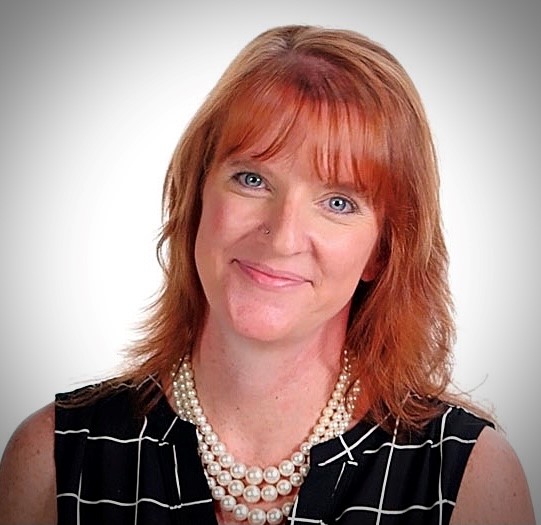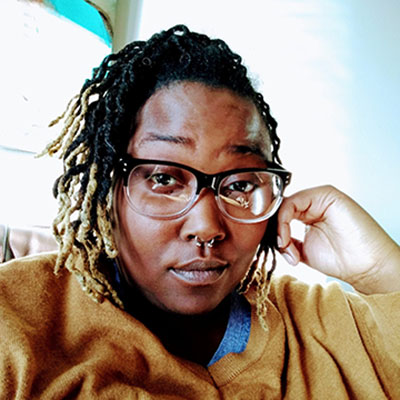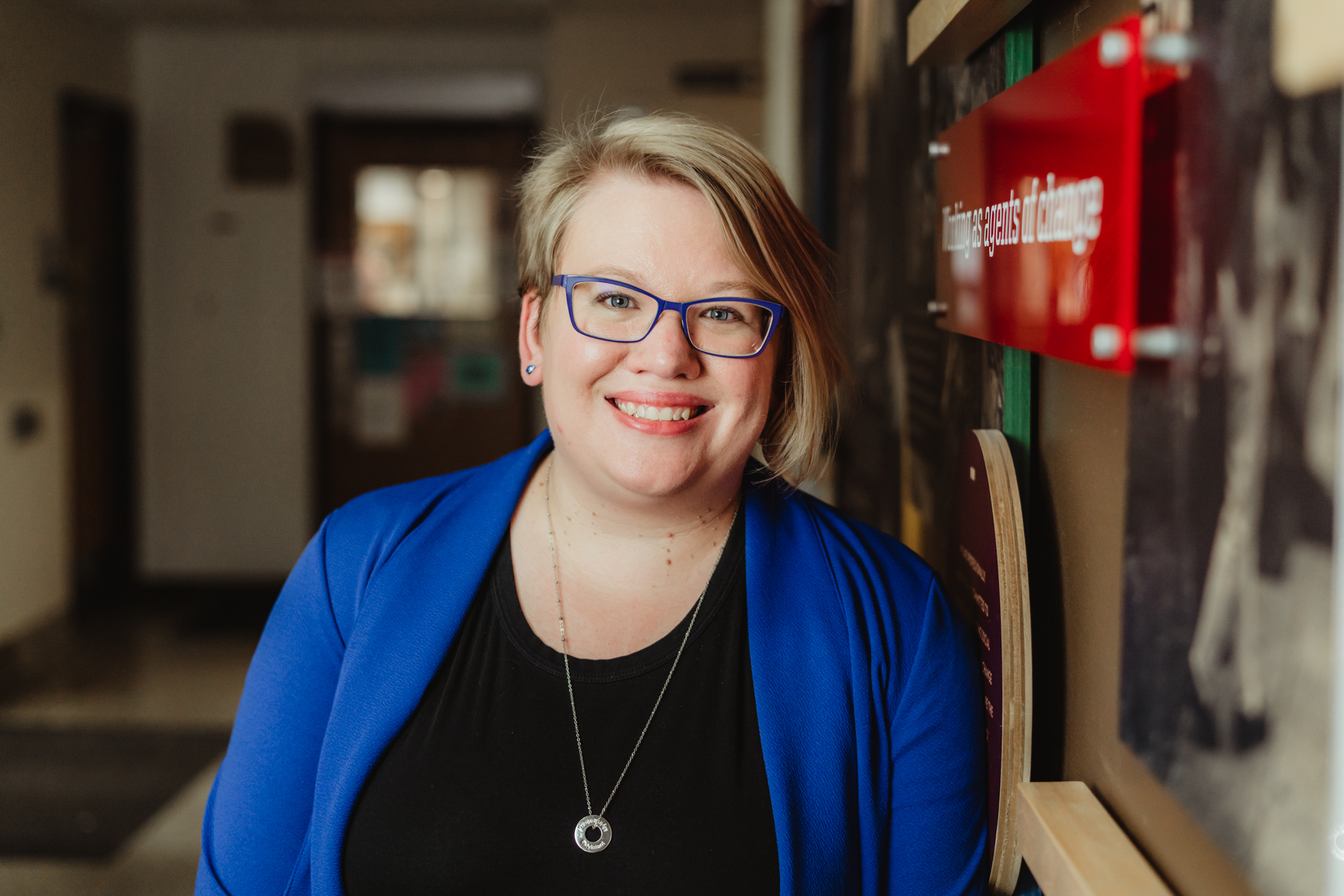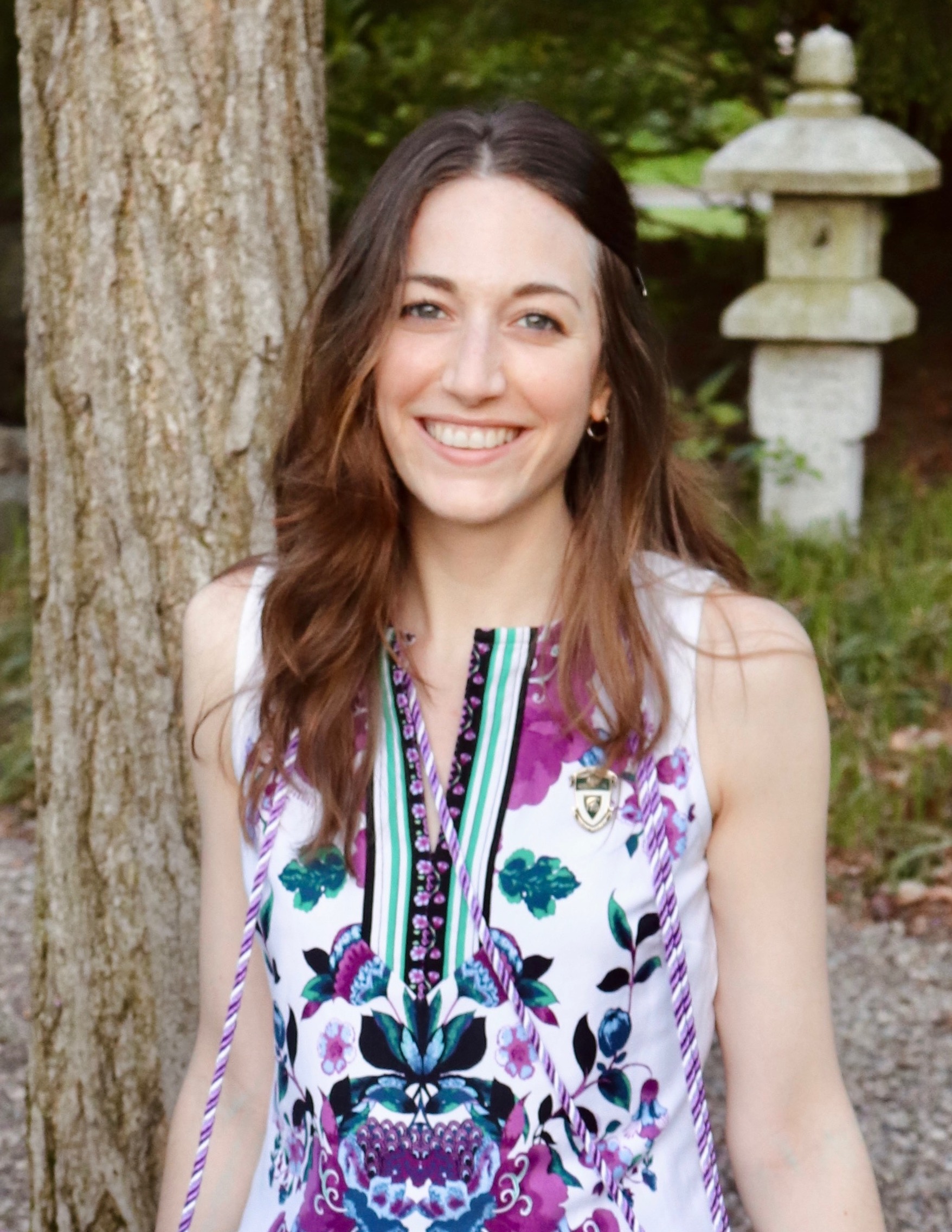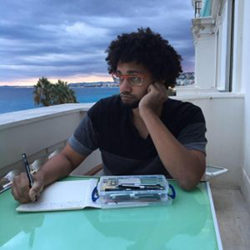
2022 Wisconsin LGBTQ+ Health Summit
The summit is FREE for students.
Join us at the VIRTUAL Wisconsin LGBTQ+ Health Summit
We invite health care practitioners, faculty, students, and members of the wider LGBTQ+ community to attend this unique conference. Connect and network with thought leaders and each other as we explore how to build an inclusive and just culture of health.
This LIVE summit strives to educate and engage the health professions about LGBTQ+ health and create new pathways to serve LGBTQ+ communities. You will find community and support here, as well as the latest best practices for improving LGBTQ+ health outcomes. We promise this experience will inspire you!
Practice Gap and Needs
One goal of Healthy People 2020 is to “Improve the health, safety, and well-being of lesbian, gay, bisexual, and transgender (LGBT) individuals.” To accomplish this, it is critical that the entire healthcare team become more knowledgeable in providing care to members of LGBTQ+ community to improve patient outcomes.
Many health professionals have received no education on gender identity, gender expression, or sexual orientation during their initial education or while in practice. They need language, communication skills, and protocols in order to build trust with and provide health care for LGBTQ+ populations.
Members of the health care team and academics will benefit from increasing their knowledge of unique health factors within the LGBTQ+ community, best practices for improving patient outcomes, and how to advocate for this population.
Target Audience
We intend this activity for nurses, physicians, physician assistants, pharmacists, psychologists, social workers, university faculty, staff, and students in the healthcare professions, LGBTQ+ community members and others with an interest in health care for LGBTQ+ populations.
Global Learning Objectives
- Describe strategies and unique factors for serving LGBTQ+ communities
- Explain best practices to advocate and improve LGBTQ+ health outcomes
- Develop strategic networks by attending interactive workshops, sessions, and a networking opportunity
Elements of Competence
This educational activity is designed to change learner competence in the following areas:
- The American Board of Medical Specialties: Interpersonal and communication skills
- Institute of Medicine: Provide patient-centered care
- Pharmacist (ACPE): Cultural sensitivity, patient advocacy, and patient-centered care
- Nursing and Interprofessional Education Collaborative Competencies: Values/ethics for interprofessional practice, and
- UW ICEP Diversity, Equity, and Inclusion: Engage in Self-reflection, address health disparities, and value diversity in the clinical encounter.
Agenda
Thursday, April 14, 2022
8:15 AM - 4:30 PM CST
Time (in CST) | Session & Description | Learning Objectives |
| 8:15 - 9:15 AM | Preconference workshop | |
LGBTQ+ 101 During this workshop, we will introduce and explore the identities, experiences, and needs of transgender, bisexual, lesbian, gay, queer, plus (+) populations. The workshop will conclude with a discussion of supporting LGBTQ+ populations through and beyond "allyship", with time for Q & A. |
| |
Expanding Our Conversation to Expand Our Care We designed this session as a case study, and the scenarios presented depict realistic clinical experiences and interactions to better prepare healthcare team members in caring for transgender and gender expansive patients. The presenters will use virtual simulation to teach principles of humility and how to create a psychologically safe environment by practicing conversations and dialogue between gender expansive patients and healthcare providers and staff. |
| |
| 9:30 - 10:00 AM | WELCOME***No continuing education credit is being offered for the Welcome session. | |
| 10:00 - 11:00 AM | OPENING PLENARY SESSION | |
Fireside chat Our Fireside Chat with Dr. Chinn will begin with practitioners and students discussing how Dr. Chinn’s work has influenced their own and will move to a question-and-answer session, designed for us to learn from her experience and hear her ideas for the future of health care. |
| |
| 11:00 - 11:15 AM | BREAK | |
| 11:15 - 12:15 PM | CONCURRENT SESSIONS | |
A1. Genetics, Genomics, and Gender: Promoting Inclusion from Pedigrees to Practice Collection and assessment of a family history and documentation of a pedigree is a tool commonly used to understand an individual's underlying genetic risk for diverse health conditions. In health care settings, providers often ask gender specific questions and draw pedigrees that employ binary gender symbols, making assumptions that conflate sex, gender assigned at birth, and gender identity. Lack of understanding and inclusion of diverse gender identities not only diminishes trust within provider-patient relationships it can also lead to misunderstandings, erroneous assumptions, and missed opportunities to optimize care. In this workshop we will discuss the importance and implications of employing affirming language and pedigree symbols that are fully inclusive of non-binary gender and transgender diversity. Using clinical scenarios and hands-on activities we will practice inclusive history taking and pedigree construction, using language and symbols that promote respect and inclusion to optimize health. |
| |
A2. Building Community and Research Engagement among LGBTQ+ Older Adults at Risk for Alzheimer's Disease and Related Dementias Research participation from LGBTQ+ older adults is extremely limited, yet LGBTQ+ adults experience a higher prevalence of risk factors for dementia. The sparse research that exists suggests LGBTQ+ older adults are interested in engaging in research but have concerns regarding lack of inclusive services and mistrust. In this workshop, we will report on our ongoing National Institutes on Aging-funded study that aims to implement culturally appropriate and inclusive strategies for engaging, recruiting, and retaining LGBTQ+ older adults with dementia and LGBTQ+ caregivers in research. |
| |
A3. Beyond Cultural Competence: Creating Cultural Safety in Health Care for Sexual and Gender Minority Populations Sexual and gender minority populations come to healthcare systems with considerable burdens of cultural violence and health disparities. Recognizing health inequities, barriers to care, and stigma as forms of cultural violence within health care, providers can meet violence with nonviolent communication as one means to the end of improving access to culturally competent care, and of improving health outcomes while reducing disparities. This workshop will present psychologist Marshall B. Rosenberg’s process of Nonviolent Communication to frame interaction between clients and providers, as a method of creating safety between clinicians and patients. |
| |
| 12:15 - 12:30 PM | Break | |
| 12:30 - 1:00 PM | “TED” TALKS | |
B1. The End in Mind: LGBTQ+ Considerations for End-of-Life Planning LGBTQ+ folks face unique challenges in end-of-life planning and barriers obtaining benefits of state-sanctioned partnership. As a registered nurse, Megan Miller has witnessed first-hand the impacts of not having an end-of-life plan in place. In this section of the workshop, Dr. Miller will offer practical skills to facilitate end-of-life plans that are consistent with the goals and values of each person. |
| |
B2. Asexual Inclusion and Support Asexuality is a recognized Sexual Orientation, but it continues to be dismissed by medical professionals as sexual dysfunction, a desire disorder, or as trauma induced. Medical professionals need to understand it as an Orientation and recognize the common challenges Asexual individuals face including pressure to consent to sex in a relationship, marital rape, corrective rape, arranged marriages, conversion therapy, and coming out to family and care providers. --------------------------------------------- What about the B in LGBTQ+? Currently, health disparities exist for plurisexual/non monosexual (bisexual, pansexual, and queer identified folks who experience attraction to more than one gender) and polyamorous folks.How we can be more inclusive and welcoming within the medical system? |
| |
B3. Abortion Access for LGBTQ People The mainstream rhetoric surrounding abortion access typically centers cis-gender white women. This workshop will address how Targeted Regulation of Abortion Providers (TRAP) laws impact communities of color and the LGBTQ community. |
| |
| 1:00 - 1:30 PM | C1. Planning for the Future - Advance Directives Deanna Rymaszewski will guide participants through a review of advance care planning documents, focusing specifically on the Power of Attorney for Healthcare. An interactive, open discussion will cover barriers and benefits to completion, opportunity for careful reflection on health care values and beliefs, and clarity around the roles of the patient and their surrogate decision-maker. |
|
C2. Religion and Spirituality in the LGBTQ+ Community MichaeI Wolfe identifies as an openly gay, ordained minister working as a health care chaplain. In the course of his work, he meets with other LGBTQ+ persons who are very wary when the chaplain comes into the room. In this presentation, Chaplain Wolfe will share some of the common themes in the spiritual/religious lives of LGBTQ+ people and the impact that may have on their health care. |
| |
C3. Trans-Affirming Sexual Violence Prevention and Response Sexual violence prevention and response efforts are often cisheteronormative and, therefore, lack meaningful inclusion of trans people. Based on a review of recent research and interviews with trans-serving and LGBTQ+-identified sexual violence prevention educators and advocates, Dr. Klein will share how trans people are included and excluded in sexual violence prevention and response efforts, and describe key strategies for trans-affirming sexual violence prevention and response efforts at practitioner, organizational, and state/national levels. |
| |
| 1:30 - 1:45 PM | BREAK | |
| 1:45 - 2:45 PM | CONCURRENT SESSION | |
D1. One wild story about the power of community Dr. Oriel will lead a presentation focusing on health disparities for LGBTQ+ individuals specifically in the use and abuse of substances. Beginning with some population health data on substance abuse, we'll review definitions of substance abuse, touch on different classifications of substance abuse and briefly overview best practices, including medically assisted therapies (MAT). Attendees will discuss the impact of shame on mental health, specifically internalized shame regarding LGBTQ+ identity, and the ensuing mental health and substance use crisis. Finally, we'll review local and national resources, including apps, treatment options, and book recommendations. |
| |
D2. Intersex 101 "Intersex 101" will introduce the audience to intersex traits, clinical approaches to individuals with intersex traits, and the speaker's experience as a parent and a nurse. |
| |
D3. Walking Alongside Native LGBTQ2S Survivors Native LGBTQ2s people are vulnerable to human trafficking and violence in unique ways. At the end of this session, participants will have a better understanding of how and will have solid ways in which they can better walk alongside survivors to help them on their healing journey. |
| |
| 2:45 - 3:00 PM | BREAK | |
| 3:00 - 4:00 PM | CLOSING KEYNOTE | |
Un-Writing the System: Abortion Access, Care, & Crip-Poetics |
| |
| 4:00 - 4:15 PM | Closing***No continuing education credit is being offered for the Closing session. | |
| 4:30 PM | Virtual Networking Join us for LGBTQ+ trivia and book giveaway, as well as time to process the Summit experience! We’ll spend time in small groups with others with similar identities. ***No continuing education credit is being offered for the Virtual Networking. | |
PROGRAM CHANGES
Emergency situations occasionally occur and may necessitate topic or speaker changes. The University of Wisconsin School of Nursing and the University of Wisconsin–Madison ICEP reserve the right to alter or substitute a topic or speaker without prior notification.
This is a virtual event. Links will be sent to participants prior to the event.
REQUIRED HARDWARE/SOFTWARE
Free, current version of Chrome, Firefox, Safari, or Internet Explorer with audio and video capabilities. Some older browsers and Microsoft Explorer could produce error messages or not display the content correctly.
SPEAKERS
Melisa Arndt, LPN | Melisa Arndt, LPN is a fierce advocate for LGBTQ+ people as well as those who struggle with substance. Nurse Arndt came to nursing as a later career after serving in the military, parenting, working as an EMT, a health unit coordinator and a variety of other career journeys. Melisa resigned from UW Health—Northeast to pursue additional educational opportunities, then joined Dr. Oriel as Out Health’s practice manager and sole nurse soon there-after. Melisa’s passion for social justice reached beyond her official job duties when she served as the Leader for Wisconsin's Free Mom Hugs Chapter. Melisa is also active in volunteering in her faith community. |
T. S. Banks (he/they/ze) | T. S. Banks (he/they/ze) is a Black & QTDisabled, non-binary teaching artist, poet, and playwright from Madison, WI. He is the Founder of Loud ‘N UnChained Theater Co and Sweet Water Liberation Lab. Their work addresses visioning for Black Liberation, a critique of the medical system, radical care + access, madness, QT Liberation, disability justice, abolition and cross-movement solidarity. |
Katherine Charek Briggs, MA, MSIS | Katherine Charek Briggs, MA, MSIS is the Assistant Director of the GSCC. Katherine has served on the board of the Consortium of Higher Education LGBT Resource Professionals nationally and in Madison helps organize LGBT Books to Prisoners and the Wisconsin Transgender Health Coalition. Katherine is invested in information access and prison abolition and finds a center in working towards transformative relationships and liberatory community spaces. |
Peggy L Chinn, RN, PhD, DSc(Hon), FAAN | Peggy L Chinn, RN, PhD, DSc(Hon), FAAN is a groundbreaking nursing researcher, educator, author, and activist. Her current area of focus includes examining the intersectionality of LGBTQ+ health and anti-racist practices. Dr. Chinn’s career has spanned 50+ year and focuses on feminist, critical/emancipatory, & postmodern theories and methodologies; women’s health; art and aesthetics; nursing theory; wholistic/caring theories and modalities; and LGBTQ health. Dr. Chinn was among the first to bring these lenses of focus to nursing. |
Jessica Gidagaakoons Smith | Jessica Gidagaakoons Smith is a two-spirit member of the Bois Forte Band of Minnesota Chippewa Tribe. She has an AA and AS degree in Law Enforcement, BS in Legal Studies and First Nations Studies, and is currently studying for her masters in Tribal Administration and Governance. Jessica is a survivor of domestic violence, sexual assault, and human trafficking. Jessica uses her past traumas to advocate for change in the justice system to create safety nets for victims and survivors. Jessica owns her own advocacy, consulting, and research business that she works hard on issues like missing and murdered Indigenous people, two spirit and LGBTQ youth protection, and climate justice. Jessica is a member of the national Criminal Justice Honor Society and speaks nationally on issues that plague Indigenous communities. Jessica is dedicated to systemic change and decolonization. Jessica is dedicated to fighting for the protection and equality of all Indigenous people. |
Megan Gour | Megan Gour is currently the social worker for the pediatric adolescent transgender health clinic (PATH clinic) at UW Health. Megan has been working in the field of social work for 10+ years and has always specialized in working with transgender, gender diverse and queer young individuals. Throughout their career Megan has worked to advocate, educate, and create safe places for LGBTQ+ individuals. Megan helped to open the first LGBTQ+ resource space on campus while obtaining their undergraduate degree in Utah, has worked with multiple agencies to create safe and inclusive policies for LGBTQ+ people and continues to advocate however possible for all LBGTQ+ individuals. |
LB Klein, PhD, MSW, MPA (they/she) | LB Klein, PhD, MSW, MPA (they/she) is an Anna Julia Cooper Post-Doctoral Fellow and incoming assistant professor in the Sandra Rosenbaum School of Social Work and core faculty member of the Sexual Violence Research Initiative at the University of Wisconsin-Madison. They use mixed methods, intersectional, and community-based participatory action approaches to study the systems in which queer and trans youth and young adults experience sexual and intimate partner violence in order to develop interventions to prevent harm. Dr. Klein enjoys exploring Madison by bicycle with their partner and identical twins. |
Megan Miller, PhD, RN (she/they) | Megan Miller, PhD, RN (she/they) is a Postdoctoral Research Associate at the University of Wisconsin-Madison School of Nursing. Megan’s work focuses on providing holistic, compassionate, and equitable end-of-life care. She is the founder of the Creative Dying Project, a Death Café facilitator and a trainee in the California Institute of Integral Studies Certificate in Psychedelic-Assisted Therapies and Research program. Funded by the American Nurses Foundation, Blue Cross Blue Shield and the American Holistic Nurses Association, her research examines the role of spirituality in supporting management of common cancer-related symptoms. Megan is passionate about exploring the applications of mindfulness meditation and psychedelic-assisted therapy for facing illness, death, and grief. |
Sean Murphy, PhD, MSN, PMHNP-BC | Sean P. Murphy, PhD, MSN, PMHNP-BC is a Board Certified Psychiatric Mental Health Nurse Practitioner and Visiting Clinical Instructor at the University of Illinois Chicago. He specializes in medication management of mood disorders, anxiety disorders, LGBTQ mental health, HIV psychiatry, and PTSD. |
Deanna Rymaszewski, MSW, APSW, APHSW-C | Deanna Rymaszewski, MSW, APSW, APHSW-C is the Clinical Educator – Social Worker for Agrace Hospice Care, a not for profit hospice based in Fitchburg, WI that serves South Central Wisconsin as well as North Central Illinois. She has a Bachelor’s degree in Spanish, with an emphasis in Hispanic Health and Human Services, and a Master’s in Social Work. She has had the opportunity to work with diverse populations in Milwaukee and Madison as well as surrounding areas. She has experience working with the elderly, physically disabled, and terminally ill and their grieving families. Within the hospice setting, Deanna has worked as a Social Worker, Bereavement Coordinator and Volunteer Coordinator. In her current role, Deanna develops education on a wide-range of topics that relate to psychosocial considerations, including grief and bereavement, at end of life. She presents to Agrace staff as well as the local community members and providers. |
Warren "War" Scherer, MPH | Warren "War" Scherer (War), MPH, previously worked at the UW-Milwaukee LGBT+ Resource Center and at Project Q, the Milwaukee LGBT Community Center’s youth program. Per also served for four years on the board of the Consortium of Higher Education LGBT Resource Professionals, including two as co-chair. Look out for pers thoughts in the Missive from the Mx in the CC newsletter. |
Callen Smith | Callen Smith has been at UW Health since 2016 where they started their work with transgender and gender diverse patients in the pediatric and adolescent transgender health clinic (PATH clinic). In 2018 they became UW Health’s first gender services navigator providing guidance for patients pursuing gender-affirming surgery. Callen completed their master’s degree in Nursing Administration in 2021 and is now the Gender Services Program Coordinator at UW Health. Callen is looking forward to supporting the development of UW Health’s Gender Services multi-disciplinary clinic and initiatives across the organization to support LGBTQ+ patients and staff. |
Lexy Ware | Lexy Ware is a doula, writer, journalist, and speaker. She is a Queer, Disabled, and Recovering Black woman. Lexy is an advocate for women, survivors, pregnant people and Disabled people. She believes in liberation for Black and all marginalized peoples and believes that true freedom begins when we free ourselves. Lexy works as an advocacy doula, volunteers for reproductive healthcare causes, writes for magazines and is currently in the process of publishing a work of creative non-fiction titled “The End of Abandon”. |
Rev. Michael (Mike) Wolfe | Rev. Michael (Mike) Wolfe is a 2011 graduate of Wesley Theological Seminary, having earned a Master of Divinity. He was ordained to full ministerial standing in the United Church of Christ in 2014. Prior to his ordination and since then, Mike has completed four units of Clinical Pastoral Education and has served in several positions as a chaplain. Mike’s interest in educating regarding LGBTQ+ spirituality began in 2012, when asked to present on the topic to his fellow chaplain resident group. Since then, he has assisted with educating several congregations during their Open and Affirming discernment and with various community organizations supporting the LGBTQ+ community. Outside of ministry, Mike has been married to his husband, Tobey, for fourteen years and they are pet parents to their dog, Miss Scarlett O. Hair. |
PLANNING COMMITTEE MEMBERS
Mel Freitag*, PhD | Jordan Langer | Carrie Riley, PA-C, MPAS |
Haley Burkhardt, MS | Diana Love | Elliot Tebbe, PhD, LP |
Sarah Glodich | Tessa Meurer | Meredith Temple |
Madelyne Greene, PhD, RN | Kristen Pecanac, PhD, RN | |
| Karen Kopacek, RPh University of Wisconsin–Madison, School of Pharmacy | Parvathy Pillai, MD, MPH |
*Summit Director
POLICY ON DISCLOSURE
It is the policy of the University of Wisconsin–Madison Interprofessional Continuing Education Partnership (ICEP) to identify, mitigate and disclose all relevant financial relationships with ineligible companies* held by the speakers/presenters, authors, planners, and other persons who may influence content of this accredited continuing education (CE). In addition, speakers, presenters and authors must disclose any planned discussion of unlabeled/unapproved uses of drugs or devices during their presentation.
For this accredited continuing education activity all relevant financial relationships have been mitigated and detailed disclosures are listed below.
* Ineligible companies are those whose primary business is producing, marketing, selling, re-selling, or distributing healthcare products used by or on, patients. The ACCME does not consider providers of clinical services directly to patients to be ineligible companies.
The University of Wisconsin provides equal opportunities in employment and programming, including Title IX requirements. The University of Wisconsin fully complies with the legal requirements of the ADA and the rules and regulations thereof. If any participant in this educational activity is in need of accommodations, please contact [email protected].
Accreditation Statement
 | In support of improving patient care, the University of Wisconsin–Madison Interprofessional Continuing Education Partnership (ICEP) is jointly accredited by the Accreditation Council for Continuing Medical Education (ACCME), the Accreditation Council for Pharmacy Education (ACPE), and the American Nurses Credentialing Center (ANCC) to provide continuing education for the healthcare team. |
CREDIT DESIGNATION STATEMENTS
AMERICAN MEDICAL ASSOCIATION
The University of Wisconsin–Madison ICEP designates this virtual live activity for a maximum of 5.0 AMA PRA Category 1 Credits™. Physicians should claim only the credit commensurate with the extent of their participation in the activity.
AMERICAN NURSES CREDENTIALING CENTER (ANCC)
The University of Wisconsin–Madison ICEP designates this virtual live activity for a maximum of 5.0 ANCC contact hours. Iowa Board of Nursing accepts ANCC contact hours for nursing continuing education requirements.
Accreditation Council for Pharmacy Education (ACPE)
A maximum of 5.0 hours of knowledge-based CE credit can be earned by successfully completing this virtual live activity. Pharmacists should claim only the credit commensurate with the extent of their participation in the activity. CE credit information, based on verification of virtual live attendance, will be provided to NABP within 60 days after the activity completion.
Universal Activity Number (UAN): JA0000358-0000-22-065-L04-P
ASWB APPROVED CONTINUING EDUCATION (ACE) – Social Work Credit
As a Jointly Accredited Organization, the University of Wisconsin – Madison ICEP is approved to offer social work continuing education by the Association of Social Work Boards (ASWB) Approved Continuing Education (ACE) program. Organizations, not individual courses, are approved under this program. State and provincial regulatory boards have the final authority to determine whether an individual course may be accepted for continuing education credit. University of Wisconsin – Madison ICEP maintains responsibility for this course. Social workers completing this course receive 5.0 live continuing education credits.
AAPA Credit Designation Statement
| The University of Wisconsin–Madison ICEP has been authorized by the American Academy of PAs (AAPA) to award AAPA Category 1 CME credit for activities planned in accordance with AAPA CME Criteria. This virtual live activity is designated for 5.0 AAPA Category 1 CME credit. PAs should only claim credit commensurate with the extent of their participation. |
AMERICAN PSYCHOLOGICAL ASSOCIATION (APA)
 | Continuing Education (CE) credits for psychologists are provided through the co-sponsorship of the American Psychological Association (APA) Office of Continuing Education in Psychology (CEP). The APA CEP Office maintains responsibility for the content of the programs. |
CONTINUING EDUCATION UNITS
The University of Wisconsin–Madison ICEP, as a member of the University Professional & Continuing Education Association (UPCEA), authorizes this program for 0.5 continuing education units (CEUs) or 5.0 hours.
Available Credit
- 5.00 AAPA Category 1 CME
- 5.00 ACPE Contact Hours - Pharmacist
- 5.00 AMA PRA Category 1 Credit™
- 5.00 ANCC Contact Hours
- 5.00 APA CE Credits
- 5.00 University of Wisconsin–Madison Continuing Education Hours
- 5.00 Approved for AMA PRA Category 1 Credit™
The summit is FREE for students.
- UW-Madison Student -- Create a profile on our website, and select "Student" for your UW affiliation status when doing so, to have your registration fee waived at checkout. If you already have an account, make sure the "Student" UW affiliation status is selected.
- Other Students -- After creating a profile on our website, contact Mel Freitag, PhD, Diversity Officer for a free registration coupon code that can be entered at checkout.
Contact Mel Freitag, PhD, UW-Madison School of Nursing, Diversity Officer to request free registration due financial hardship.
Kindly notify ICEP-Nursing Professional Development at least 96 hours prior to the summit to cancel your registration
REGISTRATION
If you have any questions about registering or creating a profile, please email [email protected] or call 608-262-7226
SUMMIT INFORMATION
Mel Freitag, PhD, UW-Madison School of Nursing, Diversity Officer
The University of Wisconsin provides equal opportunities in employment and programming, including Title IX requirements. The University of Wisconsin fully complies with the legal requirements of the ADA and the rules and regulations thereof. If any participant in this educational activity is in need of accommodations, please contact [email protected].
Required Hardware/software
Free, current version of Chrome, Firefox, Safari, or Microsoft Edge with audio and video capabilities. Some older browsers and Internet Explorer could produce error messages or not display the content correctly.

 Facebook
Facebook X
X LinkedIn
LinkedIn Forward
Forward